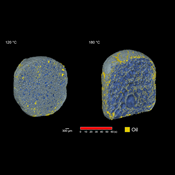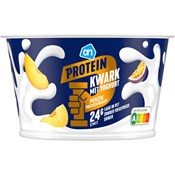


Xavier Gellynck, agricultural economist and professor at the University of Ghent, gives his view of the impact on the food industry due to the Ukraine crisis. He also shares his advice for ingredient suppliers and food companies.
Xavier Gellynck: “Like any other sector of our economy they will be faced with higher prices, especially those that are largely energy-dependent. For clients, it is not always just a matter of passing the price rises on. Try to establish whether or not the client can simply pass the increases on. Often, price rises are also associated with falling demand, or with shifts in demand. Consider, for example, substituting ingredients, such as replacing animal with plant-based proteins. Once the shift has been made, companies rarely revert to the original situation. This is mostly to do with extra costs in terms of preparation methods and processing.”
Xavier Gellynck: “Risks go up in uncertain times, and they have to be monitored closely. Keep a hand on the purse strings. Review the conditions of payment, especially offers of client credit. Use payment advances and instalments. This shouldn't be an issue for clients today because cash is very cheap, even valued negatively at the bank. If clients cause a fuss about it, take that as a red flag. Above all, deal with clients whose business (and issues) you know well. In other words, anticipate what is to come.”
Xavier Gellynck: “The more susceptible a company's market is to economic fluctuations, the more likely it is for rising prices to affect final demand in the opposite direction. It is important to keep an eye on the profit margin, so not merely the final price but the difference between the final price and

Xavier Gellynck: “I am a strong believer in sustainable partnerships between supplier and client, and, by extension, between the supplier’s supplier and the client's client. In other words: multiple links in the chain come together to create shared solutions - so bilateral relations are transcended and a true chain-partnership is forged.”

“It is always advisable to maintain a critical perspective on your own products and adjust them to contemporary needs where necessary”, emphasises Marijke Adriaens, CEO of frozen food company Fribona. “For consumers, taste is still the main consideration. It is essential to work towards a product that is, above all, tasty and visually appealing.”...

Scientists from KU Leuven have discovered how oil penetrates snacks during and after the frying process. Recent research findings point to advanced frying techniques that reduce oil absorption, as well as innovative methods to limit oil uptake during the cooling phase. This paves the way for the development of healthier snacks without compromising...

Food companies are increasingly targeting a wider range of consumer groups. Speaking at an event organised by Fenavian, Julian Mellentin of New Nutrition Business said this strategy offers significant opportunities to respond to the diverse health needs and interests of today’s consumers. “Consumers enjoy both animal and plant-based proteins”, he...

Backed by financial partners, Start it @KBC is launching the accelerator programme Scale it Agro, aimed at scale-ups offering sustainable and innovative agricultural solutions for agriculture and horticulture businesses. Kjell Clarysse, programme director at Scale it Agro, goes into more detail.